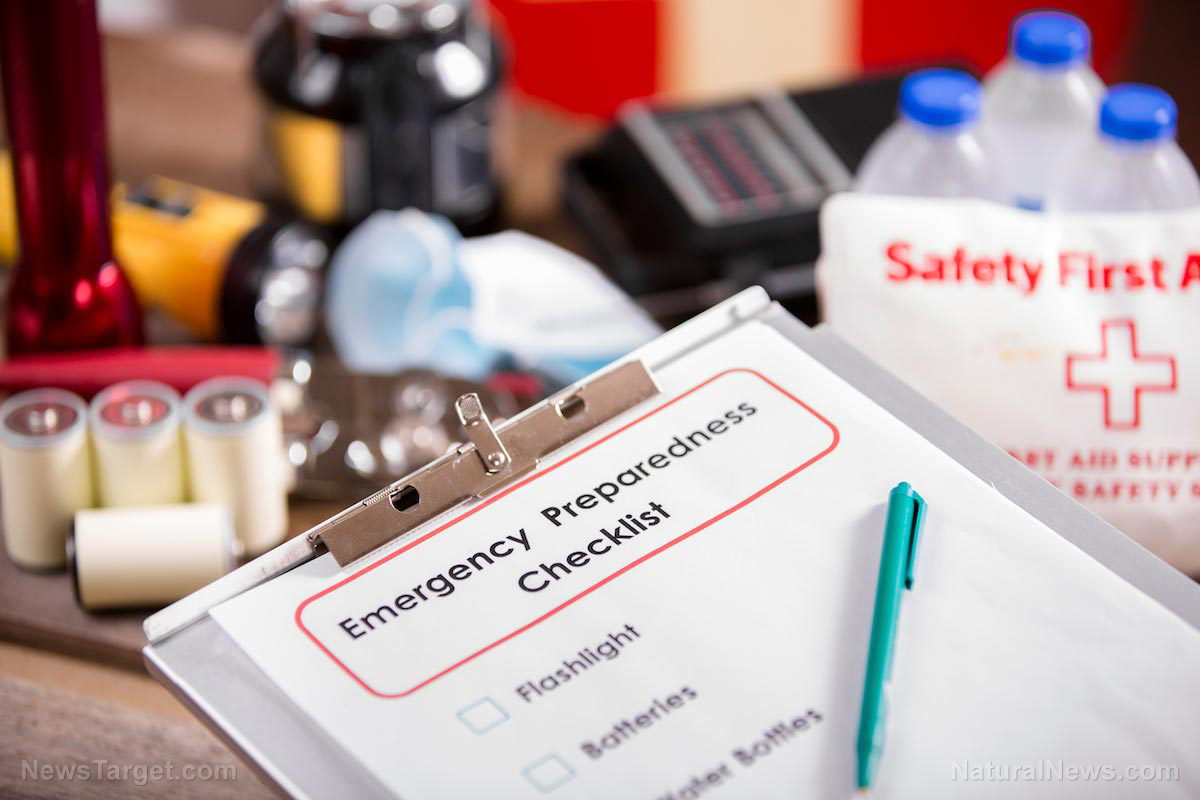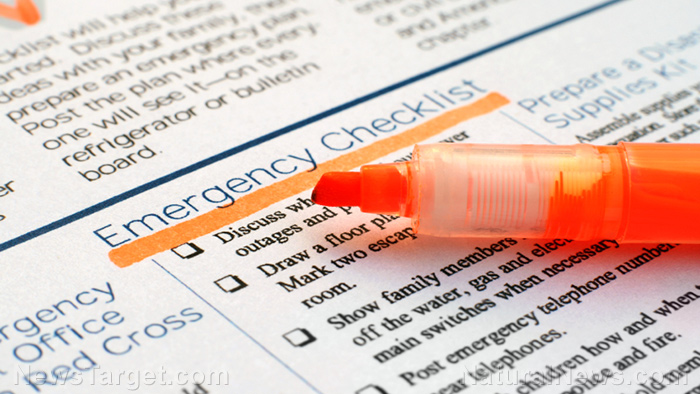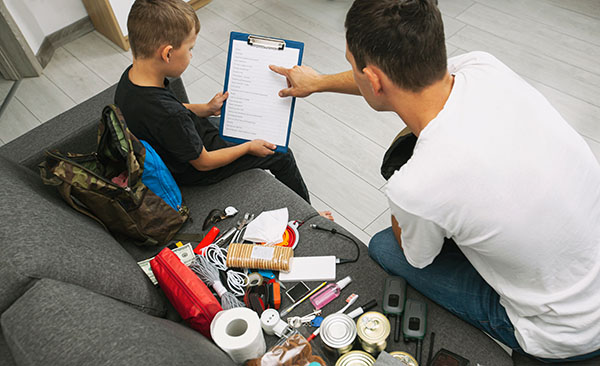
It's important to prepare everything you need before a power outage because when the lights go out, you might get disoriented and your family might panic.
Stay calm, get everyone some flashlights and listen to the news if you experience a blackout in your neighborhood. (h/t to FoodStorageMoms.com)
Keep the lights on: Prep before SHTF
Here are the 20 things you need to do before and during a power outage in your area.
Monitor the news
You should monitor the news regularly before SHTF so you always have a heads up for any situation that you can prepare for, like a planned power outage or an incoming storm. Listening to the news also gives you a chance to gather as much information as possible.
Check the weather
A power outage might not seem so bad, but things might escalate quickly if you're also facing a storm when you lose power.
Check the weather, especially during winter, so your family is prepared for any scenario. If you're facing a power outage in winter, keep yourself and your family members warm. Cover the windows and huddle in one room to stay warm. Stock up on extra coats and blankets.
If you experience a power blackout in summer, you can stay cool by leaving some doors and windows open to take advantage of any small breeze. Prep for a summer power outage by stocking up on hand fans or battery-operated fans. Use a misting bottle to stay cool and wear loose-fitting clothes.
Charge all your devices
Keep everyone's phones charged so you can call for help if you need it. Don't forget to charge all power banks and extra batteries for your flashlights and emergency radios. Get a solar charger or use your car charger in a pinch.
Make sure your family is familiar with your emergency plan
It's great to have one prepper in the family, but things will be much smoother if the whole family knows what to do when SHTF. Make sure everyone knows where to grab a flashlight or lamp so they can safely navigate when the lights go out.
If some family members are at work or school when the power goes out, call them and make sure they remain in their current location until it's safe to leave and go back home.
Prepare a box with emergency light sources and batteries
Prepare a "lights out box" with items that you will need the minute you lose electricity. Include items like portable lanterns, flashlights and extra batteries.
You can also include a hand-crank emergency radio to monitor the news. (Related: Prepping 101: What to expect when the power goes out.)
Stock up on candles
Flashlights and portable lanterns are handy, but you should also have candles, matches or lighters for backup. You should also have sturdy candle holders or some thick Mason jars to prevent any accidents when leaving a candle in any room.
Check your electronics
Most homes have electronics that you should check during a power outage like desktop computers, game consoles, mobile phones or laptops. You can use a surge suppressors to protect your devices or go old school and unplug each one after an outage.
Have enough fuel for your generator
If you own a generator, stock up one enough fuel so you can use it when SHTF. Learn how to use the generator efficiently and have a safe way to store extra fuel for it.
Have other backup power sources
One power bank won't be enough to charge your devices if a blackout lasts for several days. Make sure you have a backup power source like a solar-powered generator.
Do a perimeter check
After the lights go out, check the area around your property to see if anyone's trying to cause any trouble. You can also check if any of your neighbors need help.
Monitor your food supply
If you don't know how long the power outage is going to last, keep an eye on your food supply. Make sure the food in your fridge and freezer lasts as long as possible by limiting the number of times the doors are opened.
Food should last for at least four hours in a quality fridge while food in your freezer can last up to 24 hours. If anything has thawed, check if it's safe to eat before cooking.
Use perishables in your fridge and stockpile
If you're facing a long-term power outage, use the most perishable items first like dairy. Save all the canned food for later.
Check your water supply
You'll need water with your food supply, along with more water for food prep and sanitation. If the power outage will affect the local water treatment plant and pumping stations, prep ahead by filling your tubs and sinks.
Arm yourself
According to statistics, crime rates go up in locations experiencing a power outage. Before SHTF, learn how to use your weapon of choice properly to protect your loved ones and your property.
Check in with your utility provider
If you're not off grid, call your utility provider. Even if there's no one to answer the call, you could get an update via a recorded message for customers and an estimated time for power restoration.
Maintain personal hygiene
Staying clean is important, especially during a long-term power outage. Stock up on water so you can take a quick shower and keep your home clean.
Try to resume your normal routine
If you're facing a long-term power outage, stick to a normal schedule. Make sure your kids are doing their homework and that you prep meals so everyone can eat on time.
Doing this can also help calm down kids who are too young to understand what's going on when the power goes out.
Have an emergency toilet option
Use graywater to flush the toilets during a power outage. If your toilets get clogged, you can either build a DIY portable toilet or dig a hole if you live in a rural area.
If you choose to build a portable toilet, you'll need heavy-duty hospital-grade sanitation bags, toilet paper rolls, rubber bands that will fit around the top of the bucket, disinfectant and dish soap.
Keep the family entertained
Stock up on some playing cards, board games and toys so all members of the family can play if they get bored while the power is out.
Check if your neighbors are all right
Once you've made sure that your family is safe and everyone has a flashlight so they can navigate your home, check in on your neighbors. Some of them might need extra food or water if they weren't prepared or there might be elderly neighbors who might need assistance with some chores.
Stock up on supplies and get batteries and flashlights so you can get around safely during a power outage.
Go to Preparedness.news for more tips on how to get ready before a blackout.
Sources include:
Please contact us for more information.





















